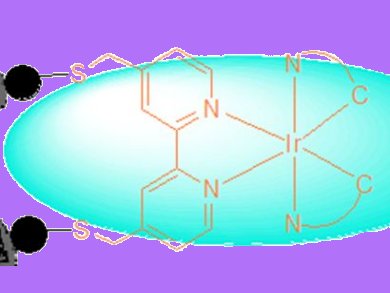The use of transition-metal complexes as cellular probes has attracted much attention in recent years. However, the solubility in aqueous media and cytotoxicity of the complexes usually affect their potential biological applications. Mei-Jin Li of the University of Fuzhou and co-workers at City University of Hong Kong, China, have designed and characterized two new iridium(III) complexes with good water solubility, high quantum efficiency and biocompatibility. The provided strategy could be used for other luminescent complexes for biological sensing.
The described synthesis is simply performed by appending carbohydrates on the chelating ligand. Addition of carbohydrates provides the advantages of reducing the toxicity and improving the water solubility, and opens up the possibility of molecular targeting of carbohydrate-binding domains in cells and tissues.
- Water-Soluble and Biocompatible Cyclometalated Iridium(III) Complexes: Synthesis, Luminescence and Sensing Application
M.-J. Li, P. Jiao, W. He, C. Yi, C.-W. Li, X. Chen, G.-N. Chen, M. Yang,
Eur. J. Inorg. Chem. 2010.
DOI: 10.1002/ejic.201000991




